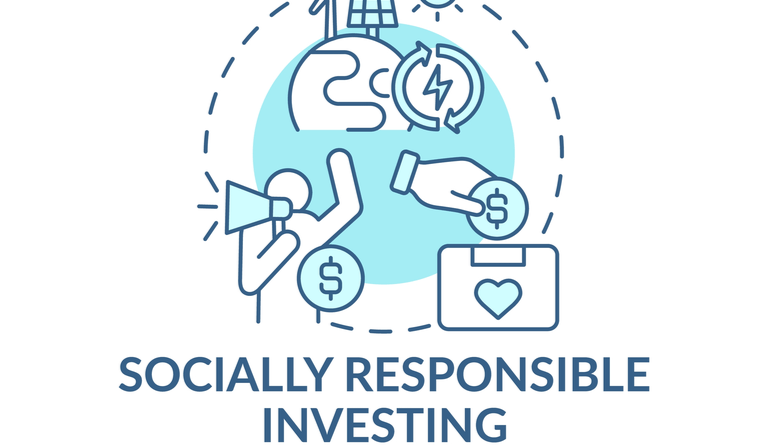What is Socially Responsible Investing (SRI)?
Socially Responsible Investing (SRI) is an investment approach that considers not only financial returns but also the social and environmental impact of companies or funds in which one invests. The core principles of SRI involve integrating ethical, social, and governance criteria into investment decisions, alongside financial considerations.
It is essential to incorporate social and environmental factors into investment decisions because it allows investors to align their values with their financial goals. By supporting companies that prioritize sustainability, diversity, human rights, and other socially responsible practices, investors can contribute to positive change while seeking financial returns.
Examples of Companies or Funds known for practicing SRI
- Calvert Research and Management: Calvert is a leader in sustainable and responsible investing, offering a range of mutual funds that focus on environmental, social, and governance (ESG) criteria.
- Parnassus Investments: Parnassus is known for its commitment to responsible investing and offers mutual funds that prioritize companies with strong ESG practices and positive societal impact.
- Impact Shares: Impact Shares is a non-profit organization that partners with leading nonprofits to create socially responsible exchange-traded funds (ETFs) focused on specific social and environmental issues.
Strategies for Socially Responsible Investing

When it comes to Socially Responsible Investing (SRI), there are various strategies that investors can employ to align their financial goals with their ethical values. These strategies include ESG integration, impact investing, and shareholder advocacy.
ESG Integration
ESG stands for Environmental, Social, and Governance factors. ESG integration involves incorporating these factors into the traditional financial analysis of investments. Companies are evaluated based on their performance in these areas, in addition to their financial metrics. This approach aims to identify sustainable and responsible investment opportunities that consider the broader impact of the company’s operations.
Impact Investing
Impact investing focuses on generating positive social or environmental impact alongside financial returns. Investors actively seek out opportunities that address specific social or environmental issues, such as renewable energy, affordable housing, or healthcare. The goal is to make a measurable difference while earning a financial return.
Shareholder Advocacy
Shareholder advocacy involves using the power of shareholder voting rights to influence corporate behavior. Investors can engage with companies on ESG issues, proposing resolutions and advocating for change in policies or practices. By actively participating in corporate governance, investors can drive companies to adopt more sustainable and responsible practices.
Impact of Socially Responsible Investing

Socially Responsible Investing (SRI) has a significant impact on companies, communities, and the planet by promoting ethical practices and sustainable initiatives. This approach to investing goes beyond financial returns and considers the broader implications of investment decisions.
Positive Effects of SRI
- SRI encourages companies to adopt environmentally friendly practices, reducing their carbon footprint and promoting sustainability.
- By engaging in SRI, investors can support businesses that prioritize social responsibility, such as fair labor practices and diversity and inclusion.
- Communities benefit from SRI through investments in local development projects, affordable housing initiatives, and community-based programs.
Influence on Corporate Behavior
- SRI can influence corporate behavior by holding companies accountable for their actions and encouraging transparency in their operations.
- Companies that participate in SRI are more likely to consider the social and environmental impact of their decisions, leading to long-term sustainability.
- Investors who prioritize SRI can push companies to improve their practices and contribute positively to society, creating a ripple effect in the business world.
Case Studies and Research Findings
- A study conducted by Harvard Business Review found that companies with strong environmental, social, and governance (ESG) performance tend to outperform their peers financially.
- The Dow Jones Sustainability Indices (DJSI) have shown that companies committed to sustainable practices have a competitive advantage and attract more investors.
- Case studies of companies like Patagonia and Unilever demonstrate how SRI can drive innovation, build brand loyalty, and enhance reputation while making a positive impact on society and the environment.
Challenges and Criticisms of Socially Responsible Investing

Socially Responsible Investing (SRI) faces several challenges and criticisms that impact its effectiveness and credibility in the investment world. These issues need to be addressed to ensure that SRI practices truly align with ethical and sustainable principles.
Challenges Faced by Investors Practicing SRI
Investors practicing SRI encounter various challenges that can hinder their ability to achieve both financial returns and social impact. Some common challenges include:
- Difficulty in measuring social and environmental impact accurately.
- Limited investment options available in certain sectors or regions.
- Potential for lower financial returns compared to traditional investments.
- Lack of standardized criteria for defining what constitutes socially responsible.
Criticisms of SRI
SRI also faces criticisms that question the authenticity and impact of its practices. Some common criticisms include:
- Greenwashing: Some companies may engage in greenwashing, where they misrepresent their environmental efforts to attract socially conscious investors.
- Limited Financial Returns: Critics argue that focusing on social responsibility may lead to lower financial returns, as companies may prioritize ethical practices over profitability.
- Subjectivity in ESG Criteria: Environmental, Social, and Governance (ESG) criteria used in SRI can be subjective, leading to inconsistencies in evaluating companies’ sustainability practices.
Addressing Challenges and Improving Transparency
To address these challenges and criticisms, the SRI industry is taking steps to enhance transparency and accountability in its practices. Some initiatives include:
- Developing standardized impact measurement tools to assess social and environmental outcomes more accurately.
- Expanding investment options in emerging markets and sectors to provide investors with a broader range of socially responsible choices.
- Engaging with companies to encourage better disclosure of ESG practices and ensure transparency in reporting.